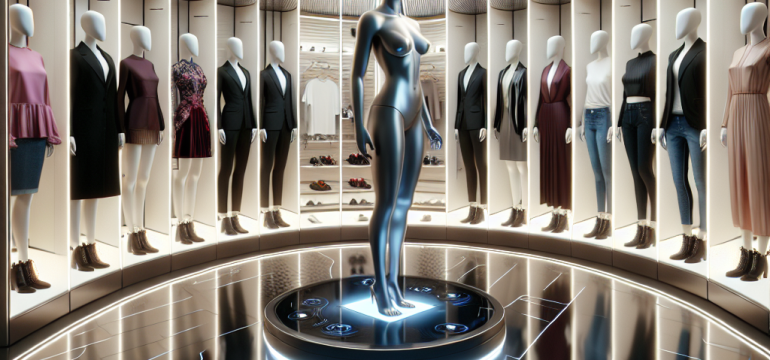Virtual FitMirror
Elevator Pitch: Imagine being able to try on any clothing item from your favorite online store from the comfort of your home with just a few clicks. Virtual FitMirror makes this a reality, revolutionizing the way we shop for clothes online by using cutting-edge AI to let you virtually try on outfits with unparalleled realism. Say goodbye to the guesswork and hello to a future where what you see is truly what you get.
Concept
An advanced virtual try-on platform for fashion retail, leveraging state-of-the-art image generation techniques to offer a highly realistic and personalized online shopping experience.
Objective
To bridge the gap between online shopping and the need for physical try-on by providing a platform that allows users to see themselves wearing clothes virtually with high accuracy and realism.
Solution
Integrating the latest research in image-based virtual try-on and AI to create a platform where users can upload their images and see how different clothing items look on them, with features such as size adjustments, style recommendations, and compatibility with various body types.
Revenue Model
Subscription fees from retailers and fashion brands for platform access, premium features for users, and an affiliate sales model where a percentage is earned from each sale made through the platform.
Target Market
Online fashion retailers and brands, tech-savvy consumers looking for a realistic try-before-you-buy experience, and social media influencers.
Expansion Plan
Initially focus on partnerships with fashion brands and online retailers, then expand to include custom clothing designers and broader e-commerce platforms. Future enhancements could include AR integration for a more immersive experience.
Potential Challenges
High development and maintenance costs for the AI and image processing technology, ensuring user data privacy and security, and achieving a high level of accuracy and realism in virtual try-on images.
Customer Problem
The inability to try on clothes virtually with a high degree of realism when shopping online, leading to uncertainties about fit and appearance, and contributing to high return rates.
Regulatory and Ethical Issues
Strict adherence to data protection regulations (e.g., GDPR), ensuring ethical use of AI, and avoiding body image issues by promoting diversity and inclusivity in representation.
Disruptiveness
Significantly reduces returns in online fashion retail by improving purchase confidence through a realistic try-on experience, setting a new standard for online shopping and fashion retail.
Check out our related research summary: here.



Leave a Reply